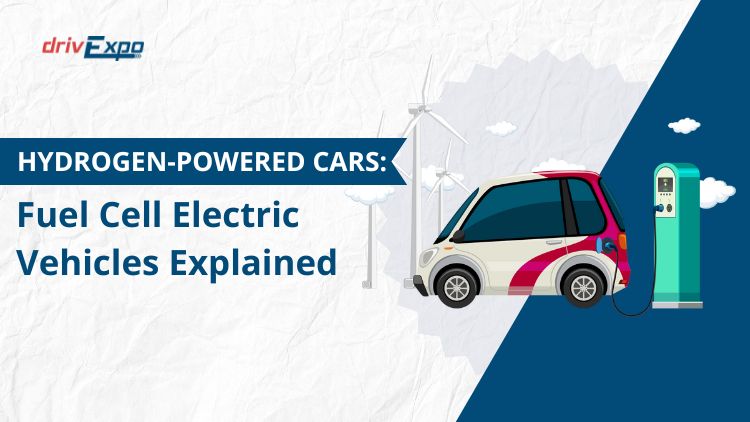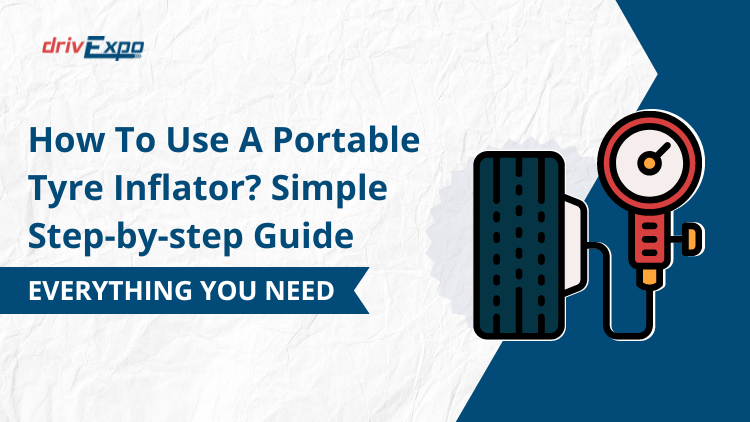Are you curious about the future of transportation and the innovative technology powering it?
Hydrogen fuel cell electric vehicles (FCEVs) are swiftly emerging as one of the most promising solutions in the quest for sustainable mobility. But how exactly do these vehicles operate?
In this article, we’ll delve into the fascinating realm of hydrogen powered cars and hydrogen fuel cell technology, exploring the intricate mechanisms behind hydrogen batteries and fuel cells that propel these cars into the future.
Picture yourself behind the wheel of a hydrogen-powered car, gliding down the road with zero emissions.
It’s not just a fantasy—it’s the potential reality offered by hydrogen fuel cell technology. But before we embark on this journey of discovery, let’s address the fundamental question: How do hydrogen fuel cell electric vehicles work?
Let’s explore the unraveling of the complexities and unveil the promise of a cleaner, greener future in transportation.
Table of Contents
Benefits of Hydrogen Powered Cars
Hydrogen fuel cell electric vehicles (FCEVs) offer a multitude of advantages over traditional combustion engine vehicles.
Among these are low maintenance requirements and zero emissions. Unlike conventional cars, FCEVs don’t rely on combustion, which means no oil changes or complex mechanical upkeep.
Additionally, their emissions consist solely of water vapor, contributing to cleaner air and a healthier environment.
Key Components of FCEVs
Fuel Cell Stack:
This assembly of membrane electrodes facilitates the electrochemical reaction between hydrogen and oxygen to produce electricity.
Fuel Tank:
Stores compress hydrogen gas onboard until it’s needed by the fuel cell.
Electric Traction Motor:
Draws power from both the fuel cell and the traction battery pack to drive the vehicle’s wheels.
Battery Pack:
Stores energy from regenerative braking and provides supplemental power to the electric motor.
Power Electronics Controller:
Manages the flow of electrical energy from the fuel cell and battery, regulating the speed and torque of the electric traction motor.
Thermal System:
Maintains optimal operating temperatures for various vehicle components, ensuring efficiency and longevity.
How a Hydrogen Fuel Cell Works
Let’s dive into the inner workings of a hydrogen fuel cell to understand how this groundbreaking technology powers vehicles into a sustainable future.
Fuel Tank: At the heart of a hydrogen fuel cell electric vehicle lies its fuel tank, where compressed hydrogen gas is stored.
This hydrogen serves as the raw material for generating electricity, which will ultimately drive the vehicle.
Hydrogen Fueling: When it’s time to refuel, drivers can visit specialized hydrogen refueling stations.
Similar to filling up a gasoline or diesel tank, hydrogen is pumped into the vehicle’s fuel tank, ready to be converted into electrical energy.
Fuel Cell Stack: Once inside the vehicle, the hydrogen gas undergoes a fascinating transformation within the fuel cell stack.
Here, hydrogen molecules react with oxygen from the air to produce electricity, with water vapor as the only byproduct.
This process is known as electrochemical conversion and is the core principle behind hydrogen fuel cell technology.
Electric Drive: The electricity generated by the fuel cell stack is then used to power an electric motor, propelling the vehicle forward with remarkable efficiency.
This electric drive system is similar to those found in battery electric and hybrid cars, providing smooth acceleration and quiet operation.
Zero Emissions: Unlike internal combustion engines that produce harmful pollutants, hydrogen fuel cells emit only water vapor, making them a clean and environmentally friendly alternative.
This emission-free operation contributes to improved air quality and reduced greenhouse gas emissions, paving the way for a greener transportation future.
Availability of Hydrogen Cars
While hydrogen fuel cell electric vehicles represent a promising advancement in automotive technology, their availability in the market is still somewhat limited.
However, there has been a steady increase in the number of hydrogen cars for sale in recent years, as automakers and governments alike recognize the potential of this clean energy solution.
Market Expansion: Major automakers such as Toyota, Hyundai, and Honda have made significant strides in bringing hydrogen fuel cell vehicles to market.
Models like the Toyota Mirai, Hyundai Nexo, and Honda Clarity Fuel Cell are leading the charge in making hydrogen cars available to consumers.
Infrastructure Development: One of the key factors influencing the availability of hydrogen cars is the development of refueling infrastructure.
As more hydrogen refueling stations are established, particularly in regions with supportive government policies, the accessibility of FCEVs continues to improve.
Global Adoption: While hydrogen fuel cell technology is gaining traction in regions like Japan, California, and parts of Europe, its availability may vary depending on geographical location.
However, with increasing investment and interest from both public and private sectors, the reach of hydrogen cars is expected to expand in the coming years.
Consumer Considerations: For prospective buyers, factors such as vehicle range, refueling convenience, and overall cost may influence the decision to choose a hydrogen car.
While availability continues to grow, it’s essential for consumers to weigh their options and assess whether an FCEV aligns with their lifestyle and transportation needs.
While hydrogen fuel cell electric vehicles are still emerging in the automotive market, their availability is steadily increasing, offering consumers a cleaner and more sustainable alternative to traditional gasoline-powered vehicles.
As technology advances and infrastructure continues to develop, the future looks bright for hydrogen cars and the transition to a greener transportation ecosystem.
Performance of Hydrogen Fuel Cell Cars
Hydrogen fuel cell cars are often praised for their impressive performance, offering a driving experience that rivals, and in some aspects, surpasses traditional gasoline-powered vehicles.
Acceleration: Thanks to their electric motors, hydrogen fuel cell cars deliver instant torque, resulting in swift acceleration and responsive handling.
This instantaneous power delivery provides a thrilling driving experience, whether navigating city streets or cruising on the highway.
Range: FCEVs boast competitive driving ranges, often surpassing those of battery electric vehicles (BEVs).
With advancements in fuel cell technology and improvements in hydrogen storage systems, some models can travel over 300 miles on a single tank of hydrogen, offering drivers peace of mind for longer journeys.
Refueling Convenience: Unlike battery electric vehicles, which require lengthy charging times, hydrogen cars can be refueled in a matter of minutes at specialized hydrogen refueling stations.
This quick refueling process eliminates range anxiety and provides drivers with the convenience they’ve come to expect from gasoline-powered vehicles.
Driving Dynamics: Hydrogen fuel cell cars offer smooth and quiet operation, delivering a refined driving experience with minimal noise and vibration.
Additionally, their low center of gravity, achieved by placing heavy components like the fuel cell stack and hydrogen tanks low in the vehicle chassis, enhances stability and handling on the road.
Costs of Hydrogen Vehicles
While hydrogen fuel cell vehicles offer numerous benefits, including zero emissions and impressive performance, their upfront costs can be higher compared to traditional gasoline-powered cars.
Several factors contribute to the overall cost of owning a hydrogen car.
Purchase Price: The initial purchase price of hydrogen fuel cell vehicles tends to be higher than that of their gasoline counterparts.
This is primarily due to the complex and specialized technology involved in producing hydrogen fuel cells and storing compressed hydrogen gas.
However, as production scales up and technology advances, we can expect prices to become more competitive over time.
Fueling Costs: When it comes to fueling, hydrogen cars typically incur higher costs compared to gasoline-powered vehicles.
While the price of hydrogen fuel varies depending on factors such as production methods and regional availability, it generally tends to be more expensive than gasoline on a per-mile basis.
However, it’s essential to consider the potential for fluctuating fuel prices and government incentives that may offset some of these costs.
Maintenance and Repairs: Hydrogen fuel cell vehicles often require specialized maintenance and repairs, which can contribute to overall ownership costs.
While FCEVs have fewer moving parts compared to internal combustion engine vehicles, servicing the fuel cell stack and other hydrogen-specific components may require expertise and specialized equipment, potentially leading to higher maintenance expenses.
Government Incentives: To encourage the adoption of clean transportation technologies, many governments offer incentives and subsidies for purchasing hydrogen fuel cell vehicles.
These incentives can help offset the higher upfront costs and reduce the total cost of ownership over the vehicle’s lifespan.
For example, in California, buyers of hydrogen cars may qualify for rebates of up to $4,500, making them more financially appealing.
Total Cost of Ownership: Despite the higher upfront costs, some studies suggest that over the vehicle’s lifetime, hydrogen fuel cell cars can be cost-competitive with traditional gasoline-powered vehicles.
Factors such as fuel efficiency, maintenance requirements, and potential savings from government incentives all play a role in determining the total cost of ownership.
For example, let’s consider the Toyota Mirai, one of the most popular hydrogen fuel cell vehicles on the market. With a starting price of around $50,000, the Mirai may seem costly compared to conventional cars. However, when factoring in potential fuel savings and government rebates, the total cost of ownership over several years may become more favorable.
Fueling System
When considering the purchase of a hydrogen vehicle, one of the primary concerns for consumers is the overall cost.
Generally, what does it cost for a hydrogen vehicle compared to its gasoline counterparts?
While the upfront price of hydrogen fuel cell cars may be higher than traditional gasoline-powered vehicles, various factors contribute to the overall cost of ownership.
Vehicle Cost: Hydrogen fuel cell cars typically come with a higher price tag than their gasoline counterparts due to the advanced technology involved in their construction.
However, government incentives and subsidies can help offset this initial expense, making FCEVs more accessible to consumers.
For example, the Toyota Mirai, one of the most well-known hydrogen cars, has an estimated starting price of around $50,000 before incentives.
Fueling System: Another consideration is the cost of establishing and maintaining hydrogen refueling infrastructure.
Currently, hydrogen refueling stations are less widespread compared to gasoline stations, which can impact the convenience and accessibility of refueling for FCEV owners.
However, advancements in infrastructure development are gradually expanding the availability of hydrogen refueling stations in select regions.
Refueling Process: How do hydrogen cars refuel, and can they be refueled at home? Hydrogen cars refuel similarly to gasoline-powered vehicles, with the process taking just a few minutes at specialized hydrogen refueling stations.
While it’s not currently practical to refuel hydrogen cars at home due to the specialized equipment required, advancements in home hydrogen refueling technology may offer a solution in the future.
Hydrogen Charge: The cost of hydrogen fuel, often referred to as the “hydrogen charge,” varies depending on factors such as production methods, transportation costs, and taxes.
As hydrogen production becomes more efficient and economies of scale are realized, the cost of hydrogen fuel is expected to decrease, further enhancing the affordability of FCEVs.
The Challenges of Fuel Cell Vehicles
Limited Infrastructure: One of the primary obstacles hindering the widespread adoption of hydrogen fuel cell cars is the lack of infrastructure.
Unlike gasoline stations, hydrogen refueling stations are still relatively scarce, particularly outside of major metropolitan areas.
This limited infrastructure makes it challenging for consumers to access refueling options conveniently, reducing the appeal of hydrogen cars for many potential buyers.
High Production Costs: Hydrogen fuel cell cars often come with higher production costs compared to conventional gasoline-powered vehicles.
The complex technology involved in manufacturing fuel cells and hydrogen storage systems contributes to these elevated costs, making hydrogen cars less accessible to the average consumer.
As a result, manufacturers face challenges in achieving economies of scale and reducing prices to competitive levels.
Fueling Time and Range Anxiety: While hydrogen cars offer quick refueling times similar to gasoline vehicles, concerns about range and refueling infrastructure can still lead to range anxiety among consumers.
The limited driving range of some FCEV models, coupled with the uncertainty of finding hydrogen refueling stations on longer journeys, may deter potential buyers from considering hydrogen cars as viable options for their transportation needs.
Competition from Electric Vehicles: With the growing popularity of battery electric vehicles (BEVs), hydrogen fuel cell cars face stiff competition in the alternative fuel vehicle market.
BEVs offer increasingly longer ranges, rapidly expanding charging infrastructure, and lower production costs compared to FCEVs, making them a more appealing choice for many consumers.
As a result, hydrogen cars must contend with the dominance of electric vehicles in the race toward sustainable transportation solutions.
Conclusion
In conclusion, the future of transportation holds immense promise with the advent of hydrogen fuel cell technology.
Hydrogen fuel cell cars represent a significant step towards a cleaner, more sustainable future, offering zero-emission driving without compromising on performance.
While challenges such as infrastructure limitations and production costs remain, ongoing advancements in hydrogen fuel cell technology and increased investment in infrastructure development are paving the way for wider adoption of hydrogen-powered vehicles.
As we look ahead, it’s clear that hydrogen fuel cell cars will play a crucial role in shaping the future of transportation, offering an environmentally friendly alternative to traditional gasoline-powered cars and contributing to a greener planet for generations to come.
FAQs
How does a hydrogen car refuel?
Hydrogen fuel cell electric vehicles refuel by dispensing compressed hydrogen gas into onboard tanks, a process that typically takes only three to five minutes, offering convenience comparable to traditional refueling.
What are the advantages and disadvantages of hydrogen fuel cells?
The advantages of hydrogen fuel cells include zero emissions, quick refueling, and high range. However, challenges such as production costs and infrastructure limitations pose notable disadvantages.
What is the future outlook for hydrogen cars?
Hydrogen cars are poised to play an increasingly significant role in sustainable mobility, complementing battery-powered electric vehicles and offering enhanced flexibility and range for drivers.


